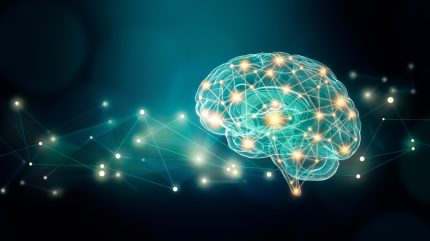
Nexalin Technology has published positive data from a clinical trial that evaluated its neurostimulation device as an add-on treatment for major depressive disorder (MDD).
The results were published in the Brain Stimulation journal and showed that the neurostimulation device when used in combination with a selective serotonin reuptake inhibitor (SSRI) – AbbVie’s Lexapro (escitalopram) – is more effective compared to medication alone. SSRIs are currently the standard of care for MDD.

Discover B2B Marketing That Performs
Combine business intelligence and editorial excellence to reach engaged professionals across 36 leading media platforms.
The double-blind, randomized, sham-controlled trial enrolled 66 participants with MDD. The participants received 20 40-minute sessions of either Nexalin’s non-invasive Deep Intracranial Frequency Stimulation (DIFS) technology or sham stimulation. All the participants also received Lexapro throughout the four weeks.
At week four, 66.7% of the participants in the active treatment responded to therapy, compared to 33.3% of the participants in the sham group. There were significant differences found in the mean reduction of the Hamilton Depression Rating Scale (HAMD-17) scores at week four, the trial’s primary endpoint.
“While we have previously demonstrated powerful treatment effects from our DIFS technology alone, this was the first study in which we evaluated our technology in combination with an SSRI, which has become the gold standard treatment in the US,” said Dr David Owens, Chief Medical Officer of Nexalin.
“Most notably, we believe that this study demonstrated strong and statistically significant separation between the active group receiving treatment with DIFS and medication, versus the placebo groups receiving medication alone—exactly the results we were hoping to demonstrate in the trial. In fact, only one-third of the treated patients receiving medication alone showed improvement, whereas two-thirds receiving the combination showed improvement.”

US Tariffs are shifting - will you react or anticipate?
Don’t let policy changes catch you off guard. Stay proactive with real-time data and expert analysis.
By GlobalDataNo serious adverse effects were observed during the study. The commonly observed side effects of the DIFS technology were headache and drowsiness.
The global market for neuromodulation devices was worth approximately $6.06bn in 2023 and is expected to reach over $8.9bn in 2027, as per GlobalData market analysis. The deep brain stimulation device market segment is forecast to constitute $1.9bn of the market by 2030.
GlobalData is the parent company of Clinical Trials Arena.
Although being first developed for the treatment of depression, neuromodulation devices are being developed to treat a variety of neurological disorders. In October 2023, Neurovalens’s neurostimulation device, Modius Sleep, received 510(k) clearance from the US Food and Drug Administration (FDA) to treat chronic insomnia. In August 2023, Dutch startup Salvia BioElectronics treated the first patient using its implantable neurostimulation system for treating severe migraine and cluster headaches.
Nexalin is also investigating the use of deep brain stimulation devices in Alzheimer’s and dementia. In March, the company also reported positive data from a clinical trial showing that its neurostimulation device can help alleviate symptoms of combat-related mild traumatic brain injury (mTBI) in veteran patients.





